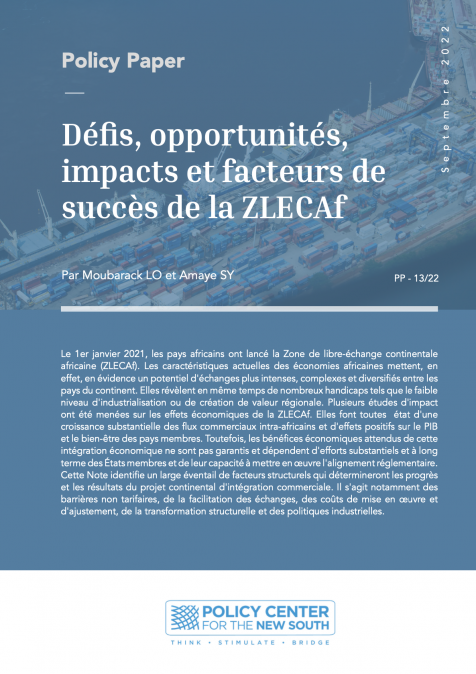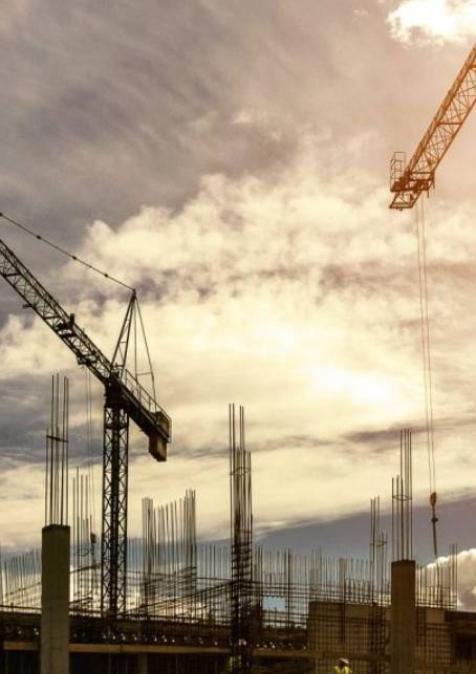Publications /
Policy Paper
Le 1er janvier 2021, les pays africains ont lancé la Zone de libre-échange continentale africaine (ZLECAf). Les caractéristiques actuelles des économies africaines mettent, en effet, en évidence un potentiel d'échanges plus intenses, complexes et diversifiés entre les pays du continent. Elles révèlent en même temps de nombreux handicaps tels que le faible niveau d'industrialisation ou de création de valeur régionale. Plusieurs études d'impact ont été menées sur les effets économiques de la ZLECAf. Elles font toutes état d'une croissance substantielle des flux commerciaux intra-africains et d'effets positifs sur le PIB et le bien-être des pays membres. Toutefois, les bénéfices économiques attendus de cette intégration économique ne sont pas garantis et dépendent d'efforts substantiels et à long terme des États membres et de leur capacité à mettre en œuvre l'alignement réglementaire. Cette Note identifie un large éventail de facteurs structurels qui détermineront les progrès et les résultats du projet continental d'intégration commerciale. Il s'agit notamment des barrières non tarifaires, de la facilitation des échanges, des coûts de mise en œuvre et d'ajustement, de la transformation structurelle et des politiques industrielles.









